Nutrition
Blue Zone Foods You Should Be Eating
Published
1 month agoon
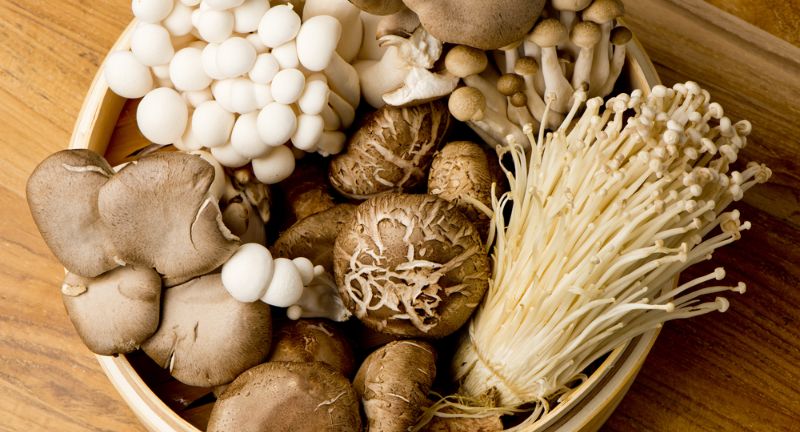
Shutterstock
Discover the secrets of longevity through the lens of Blue Zone diets, where the inclusion of certain foods is believed to contribute significantly to the remarkable lifespans of their populations. These regions, identified for their high concentration of centenarians, follow a dietary pattern rich in plant-based foods, whole grains, and healthy fats, offering profound health benefits and insights into sustainable eating habits. From the heart-healthy fats of olive oil and nuts to the antioxidant-rich profiles of leafy greens and berries, each food item plays a pivotal role in nurturing health and promoting a life of vitality. Explore these 25 Blue Zone foods to understand how integrating them into your daily diet can pave the way for a longer, healthier life.
Legumes (beans, lentils, peas)

Shutterstock
Legumes are a cornerstone of Blue Zone diets, offering an excellent source of plant-based protein, fiber, and essential nutrients such as iron and zinc. They are incredibly versatile, used in a variety of dishes from salads to soups, contributing to a feeling of fullness and aiding in weight management. Regular consumption of legumes is linked to reduced risks of chronic diseases, including heart disease and diabetes. Their low glycemic index also makes them beneficial for blood sugar control, making them a wise choice for a longevity-focused diet.
Whole grains

Shutterstock
Whole grains, such as oats, barley, brown rice, and whole wheat, are a staple in Blue Zone diets, packed with fiber, vitamins, and minerals. They contribute to heart health by lowering cholesterol levels and have a positive effect on gut health due to their high fiber content. Whole grains can help in maintaining a healthy weight by keeping you fuller for longer, reducing the tendency to overeat. Including a variety of whole grains in your diet can also help reduce the risk of chronic diseases, making them a key component of a longevity-promoting diet.
Leafy greens

Shutterstock
Leafy greens like spinach, kale, Swiss chard, and collard greens are nutritional powerhouses, loaded with vitamins A, C, K, and minerals like calcium and iron. They are rich in fiber and low in calories, supporting weight management and promoting a healthy digestive system. The antioxidants found in leafy greens can protect against chronic diseases by neutralizing harmful free radicals. Incorporating a variety of leafy greens into your diet can contribute to overall health and longevity by providing essential nutrients and health-protective compounds.
Nuts

Shutterstock
Nuts are a critical component of Blue Zone diets, offering a dense source of healthy fats, protein, and fiber. Consuming nuts regularly has been linked to reduced risk of heart disease, thanks to their beneficial effects on cholesterol levels and inflammation. They are also a convenient, satisfying snack that can help manage hunger and support weight control. Almonds, walnuts, and pistachios, among others, provide essential nutrients, including vitamin E and magnesium, making them a valuable addition to a healthful diet.
Seeds

Shutterstock
Seeds, such as chia seeds, flaxseeds, and hemp seeds, are another nutrient-rich food embraced by those in Blue Zones. They are excellent sources of omega-3 fatty acids, which are crucial for brain health and reducing inflammation. Seeds also pack a high fiber content that aids in digestion and promotes satiety, helping with weight management. Incorporating these into your diet can improve your nutrient intake, providing antioxidants, minerals, and essential fatty acids that contribute to longevity.
Fruits

Shutterstock
Fruits, especially berries, apples, oranges, and bananas, are a sweet aspect of Blue Zone diets, offering a rich source of vitamins, minerals, fiber, and antioxidants. They can help reduce the risk of chronic diseases, including heart disease and cancer, due to their high nutrient and antioxidant content. Fruits are also hydrating and have a low energy density, making them a great choice for weight management and overall health. Incorporating a variety of fruits into your daily diet can provide essential nutrients and contribute to a long and healthy life.
Vegetables
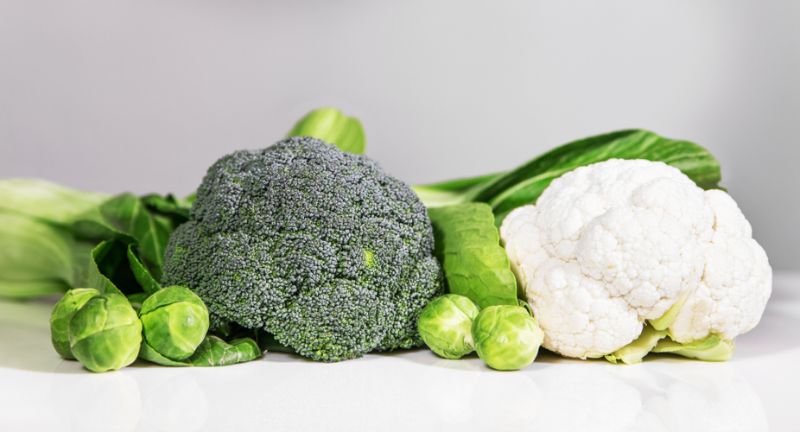
Shutterstock
A variety of vegetables, especially cruciferous ones like broccoli, cauliflower, and Brussels sprouts, are consumed regularly in Blue Zones. These vegetables are known for their high content of vitamins, minerals, fiber, and phytonutrients that can protect against various diseases. Their antioxidant properties can help reduce inflammation and support overall health. Eating a wide array of vegetables daily can contribute to longevity by providing essential nutrients and health-protective benefits.
Sweet potatoes

Shutterstock
In Okinawa, one of the Blue Zones, sweet potatoes are a primary carbohydrate source, prized for their nutritional content, including vitamins A and C, fiber, and antioxidants. They are believed to contribute to the longevity of Okinawans, offering a low glycemic index option that helps with blood sugar regulation. Sweet potatoes are also versatile and can be prepared in various ways, making them a delicious addition to any meal. Their high nutrient density supports immune function and provides sustained energy, making them a staple in a longevity-focused diet.
Olive oil

Shutterstock
Olive oil, a key component of the Mediterranean diet, is celebrated for its heart-healthy monounsaturated fats and antioxidants. It has been shown to reduce the risk of heart disease, thanks to its anti-inflammatory and cholesterol-lowering effects. Olive oil is also versatile, enhancing the flavor of dishes while providing health benefits. Using it as a primary fat source in cooking can contribute to longevity and protect against chronic diseases.
Tomatoes

Shutterstock
Tomatoes are a staple in many Blue Zone kitchens, rich in lycopene, vitamin C, and potassium. The antioxidant lycopene has been linked to reduced risk of heart disease and certain cancers. Tomatoes are also versatile, easily incorporated into salads, sauces, and various dishes, adding flavor and nutrition. Their consumption supports heart health and provides valuable nutrients, making them a key food in longevity diets.
Garlic

Shutterstock
Garlic is renowned for its health-promoting properties, including its ability to reduce blood pressure and cholesterol, making it a valuable addition to a heart-healthy diet. It’s also used for its antimicrobial and anti-inflammatory effects, contributing to overall health and immunity. Garlic adds a rich layer of flavor to dishes, making it a favorite in culinary traditions worldwide. Regular consumption can offer protective benefits against disease, aligning with the dietary habits of those in Blue Zones.
Turmeric

Shutterstock
Turmeric is a staple spice in Okinawa, consumed for its anti-inflammatory and antioxidant properties, attributed to its active compound curcumin. It’s believed to contribute to the low rates of chronic diseases and longevity of the Okinawan people. Turmeric can be added to a variety of dishes, offering a warm, earthy flavor and a bright yellow hue. Its health benefits, including potential protective effects against Alzheimer’s disease and cancer, make it a valuable component of a longevity diet.
Whole soy foods

Shutterstock
Whole soy foods, such as tofu, tempeh, and edamame, are excellent sources of high-quality plant-based protein and rich in phytonutrients, including isoflavones. These foods are integral to many Blue Zone diets, particularly in Okinawa, where soy is a staple protein source. Isoflavones in soy foods are thought to have beneficial effects on heart health and may help reduce the risk of certain cancers. Consuming whole soy foods can contribute to a balanced diet, offering essential nutrients and health benefits that support longevity.
Fatty fish

Shutterstock
Fatty fish, such as salmon, mackerel, and sardines, are consumed in some Blue Zones and provide a rich source of omega-3 fatty acids, essential for brain health and reducing inflammation. These fish are also high in protein and vitamin D, supporting bone health and immune function. Regular consumption of fatty fish is associated with a lower risk of heart disease, attributed to their beneficial effects on blood lipids and blood pressure. Including fatty fish in your diet a few times a week can offer significant health benefits, contributing to longevity and well-being.
Tea

Shutterstock
Green and herbal teas are a daily ritual in many Blue Zones, consumed for their health-promoting antioxidants. Tea offers a range of benefits, from improving heart health to reducing the risk of cancer and supporting brain function. The ritual of tea drinking also provides a moment of relaxation and social interaction, which can contribute to overall well-being. Incorporating a variety of teas into your daily routine can be a simple yet effective way to enhance your health and longevity.
Coffee

Shutterstock
Regularly consumed in moderation, coffee is a staple in several Blue Zones, appreciated for its antioxidants and potential health benefits. Studies suggest that coffee consumption is linked to a reduced risk of several chronic diseases, including Parkinson’s disease, type 2 diabetes, and liver disease. Coffee also provides a mental boost and can enhance physical performance, making it a favored beverage in many cultures. Incorporating coffee into your daily routine, without excessive sugar or high-calorie additives, can contribute to a healthy, longevity-supportive diet.
Red wine

Shutterstock
In moderation, especially in the Mediterranean Blue Zones, red wine is consumed for its antioxidants, such as resveratrol, which may help protect the heart and reduce inflammation. Moderate consumption is associated with a longer lifespan and reduced risk of several chronic diseases. The social aspect of sharing a glass of wine with meals also contributes to the overall well-being and happiness of individuals in these regions. Including a moderate amount of red wine in your diet could offer health benefits, provided it is consumed responsibly and as part of a balanced diet.
Dark chocolate

Shutterstock
Dark chocolate, consumed in moderation, is rich in antioxidants, particularly flavonoids, which have been shown to support heart health and reduce blood pressure. It also contains compounds that can improve mood and cognitive function. Choosing dark chocolate with a high cocoa content maximizes these health benefits while minimizing added sugars and fats. Including a small amount of dark chocolate in your diet can be a delightful way to enjoy its health benefits and contribute to longevity.
Avocados
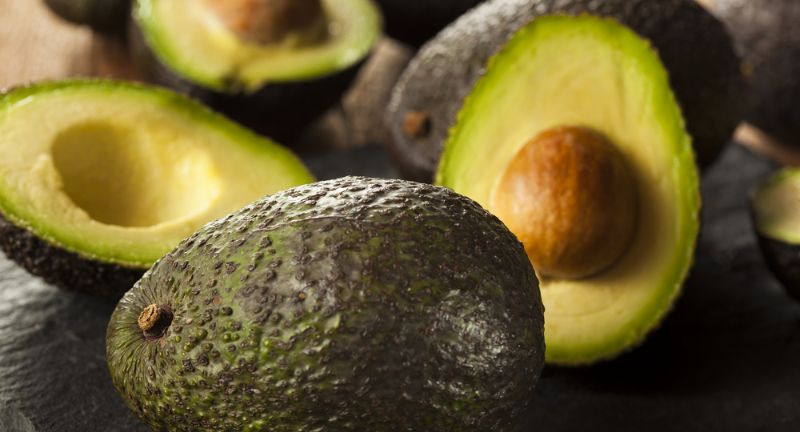
Shutterstock
Avocados are a source of healthy fats, fiber, and vitamins, contributing to cardiovascular health and weight management. Their high content of monounsaturated fats can help reduce bad cholesterol levels and improve heart health. Avocados are also rich in potassium, which supports blood pressure regulation. Incorporating avocados into your diet, whether in salads, sandwiches, or as a spread, can enhance nutrient intake and support a diet aimed at longevity.
Squash

Shutterstock
Various types of squash are consumed in Blue Zones, offering a wealth of vitamins, fiber, and antioxidants. Squash is low in calories and high in vitamin A and vitamin C, supporting immune function and skin health. It’s also a versatile vegetable that can be roasted, steamed, or pureed into soups, making it easy to incorporate into meals. The nutrient density and health benefits of squash make it a valuable addition to a diet focused on longevity and well-being.
Mushrooms

Shutterstock
Mushrooms are valued in Blue Zone diets for their flavor and nutritional benefits, including being a source of vitamin D and minerals. They have been linked to improved immune function and reduced risk of chronic diseases. Mushrooms are low in calories, making them an excellent choice for weight management. Their versatility in cooking allows them to be included in a wide range of dishes, from stir-fries to soups, enhancing flavor and nutritional content.
Whole eggs

Shutterstock
Whole eggs are consumed in moderation within Blue Zone diets, recognized for their high-quality protein and nutrient density. They contain essential vitamins and minerals, including vitamin D, B vitamins, and choline. Eggs can support brain health and provide a complete protein source, making them a valuable food for maintaining muscle mass and overall health. Including eggs in a balanced diet, particularly when sourced from pasture-raised chickens, can contribute to a nutritious and longevity-promoting eating pattern.
Fermented foods

Shutterstock
Fermented foods, such as yogurt, kefir, sauerkraut, and kimchi, are essential for gut health, offering a source of probiotics that help maintain a healthy gut microbiome. These foods can improve digestion, enhance immune function, and may contribute to better mental health through the gut-brain axis. Regular consumption of fermented foods is linked to reduced inflammation and a lower risk of several chronic diseases. Incorporating these into your diet can support overall well-being and longevity, aligning with dietary habits observed in Blue Zones.
Herbs and spices

Shutterstock
Herbs and spices are used liberally in Blue Zone diets for flavor and their health-promoting properties. They are rich in antioxidants and can contribute to reducing inflammation and enhancing overall health. Incorporating a variety of herbs and spices into meals can also reduce the need for salt, helping to manage blood pressure. From turmeric to garlic, adding these to your diet can offer a simple way to boost both flavor and nutritional value, supporting a longevity-focused lifestyle.
Barley
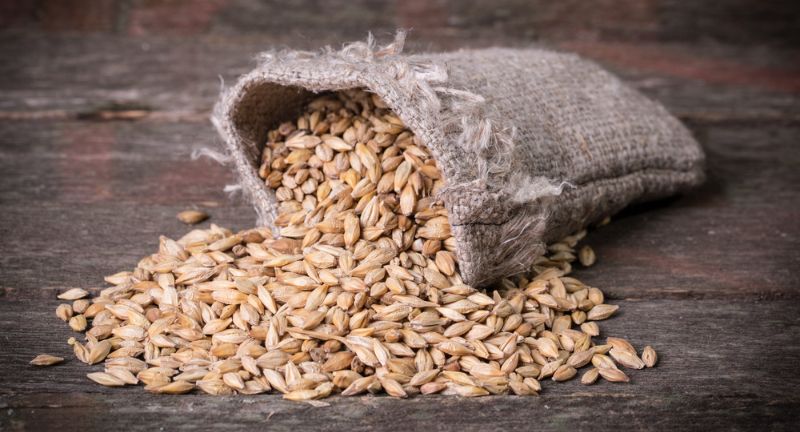
Shutterstock
Barley is a whole grain used in a variety of Blue Zone dishes, from soups to salads, known for its rich fiber content and health benefits. It can help lower cholesterol, control blood sugar levels, and promote a healthy digestive system. Barley also provides a good source of vitamins and minerals, including selenium, magnesium, and zinc. Its inclusion in your diet can support heart health and contribute to a nutritious, longevity-enhancing eating pattern.
Conclusion

Shutterstock
Embracing the dietary habits of the Blue Zones can be a transformative step towards achieving a healthier, longer life. By incorporating these 25 nutrient-rich foods into your daily meals, you not only enrich your diet with flavors and textures but also arm your body with the essential nutrients it needs to thrive. The longevity of Blue Zone populations is a testament to the power of diet in influencing health and lifespan. Let the wisdom of these ancient cultures inspire you to make mindful choices that nourish your body, foster well-being, and potentially extend your years, all while enjoying the delicious bounty nature has to offer.
More From Health + Wellness
-


Krispy Kreme Unveils New Twix Bar Collab
-


Impress your holiday guests with these nutritious recipes from Food…
-


Taco Bell Bringing Back Fan Fave
-


DoorDash Partners with Girls Scouts for Instant Cookie Fix!
-
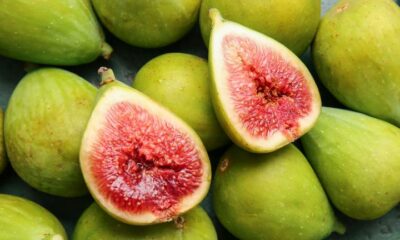

Foods Surprisingly High In Fiber – And 5 That Fall…
-


Foods We Once Thought Were Healthy But Aren’t
